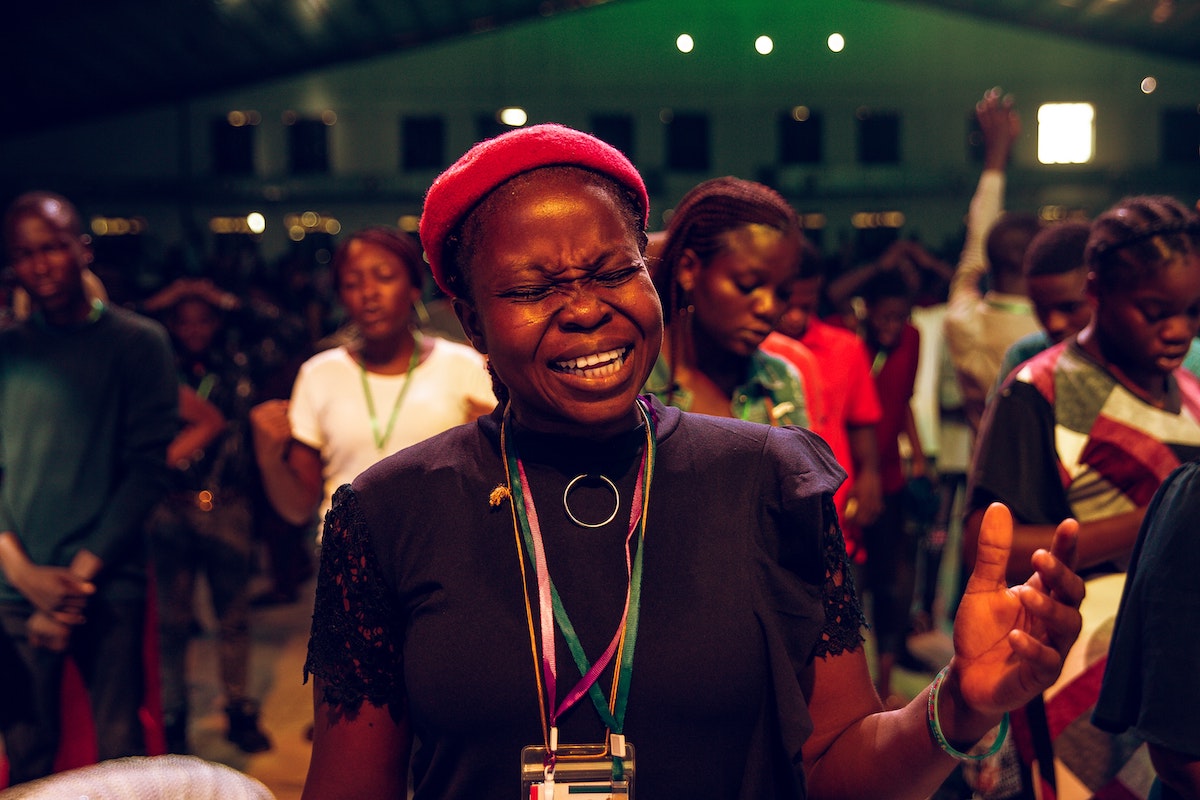Christians use the word “encouragement” so much that it can lose its meaning. It slips casually off our tongues to describe Sunday’s sermon or coffee with a friend. Even unintentionally, the vibe is similar to “#blessed”—it can begin to mean warm, fuzzy feelings.
And no doubt, being encouraged does impact our emotions. But for a follower of Jesus, encouragement has more to do with battle prep than scented candles. To encourage is to strengthen, to inspire with courage, to spur on.
Who, then, can teach us about gospel encouragement better than believers who must daily prepare their hearts, minds, and bodies for persecution? Femi Osunnuyi, an Acts 29 church planter in Lagos, Nigeria, shares something of his context and the hope that keeps Nigerian Christians steadfast in the face of suffering.
Religious Persecution in Nigeria
“Nigeria is unique because it’s the only country in the world that has both Christianity and Islam as its two dominant religions,” Femi says. According to the Pew Research Forum, Nigeria currently has the world’s fifth-largest Muslim population and the sixth-largest Christian population. And it’s projected to have the third-largest of each of those two religions by 2060.
For a follower of Jesus, encouragement has more to do with battle prep than scented candles. Click To Tweet“Northern Nigeria is predominately Muslim. Southeast Nigeria is predominantly Christian. And Southwest Nigeria, where City Church Lagos is located, is nearly split evenly between the two. Christians in Nigeria’s northern and Middle Belt regions experience heavy persecution, but many of the Muslims in Lagos are moderate.”
Femi says that religious persecution has not hindered church planting in Nigeria.
“Nigerian church planters are heroes. They gladly suffer the sufferings of Christ. They stay and plant when common sense says to retreat. Yes, persecution is terrible. But its sufferers help us remember that part of what it means to be Christian is to suffer, and the gates of hell will not prevail against the churches we plant. I get a lot of inspiration from this.”
Femi spurs on Nigerian believers—and us—in perseverance by urging an ethic that embraces suffering, prays, and keeps sight of eternity.
Embrace Suffering
The reality of suffering as something integral to the Christian life is close and clear for global believers, but that doesn’t make it easy for anyone. To strengthen ourselves and others in the gospel, Femi says, “First, we must embrace suffering.”
This is counter-intuitive; we instinctively run from suffering. But for thousands of years of church history, Christians have understood that suffering is an unavoidable part of the Christian life (1 Pet. 4:12, 5:9). Jesus told us to expect hardship, persecution, and sorrow. Femi believes we must embrace suffering in three ways—as a tag, a target, and a tool.
1. “We embrace suffering as a tag because our suffering is a result of who we belong to,” says Femi. Suffering marks us as followers of Jesus. The privilege of following our Savior, even in hardship, has sustained many persecuted believers throughout history. But our belonging works both ways: we endure sorrow now and get joy forever. We belong to Christ in our tearful now and for all our tear-free future (Rom. 8:17–18).
2. “We embrace suffering as a target because Christ’s enemy is our enemy. Satan is against us. It’s just part of the deal,” says Femi. The sooner we acknowledge our enemy—a roaring lion seeking to devour (1 Pet. 5:8), the better prepared we will be to stand against him. So we look to our triumphant Savior and help one another when our spiritual armor slips. If Satan is against us, we’re on the right side.
3. “We embrace suffering as a tool,” says Femi, “because our suffering is never meaningless.” Joseph told the brothers who betrayed him what they intended for evil, God intended for good (Gen. 50:20). We may not understand how or why God selects the sharp pain of pruning shears or flames as tools to refine us, but Christ’s cross shows us we can trust him. “God uses it to shape us (Rom. 5:3–4). Suffering never has the last word.”
Pray
“Second,” Femi says, “we must pray, pray, pray, and pray some more.” We depend utterly on the work of the Spirit to sustain us every day. David cried to God amid his trials and sin, and so must we. We have a great High Priest—Jesus himself—forever interceding for us before the Father so we may boldly come to him in our need (Heb. 4:14–16). “And as we pray, it’s important to recruit people to pray with us and for us” (2 Cor. 1:8–11). We need each other in the holy labor of prayer.
Keep Sight of Eternity
“And third,” says Femi, “we mustn’t lose sight of eternity.” One day our Spirit-wrought endurance through sorrow will lead to an eternal weight of glory (2 Cor. 4:17). “Ours is a worldview that doesn’t confine us to this world alone.” Fixing our thoughts on the unseen, eternal realities that are ours in Christ will develop our spiritual strength.
Yes, persecution is terrible. But its sufferers help us remember that part of what it means to be Christian is to suffer, and the gates of hell will not prevail against the churches we plant. - Femi Osunnuyi Click To TweetMay we together embrace suffering, petition our Father, and keep our eyes fixed on eternity. And may Christ be pleased to strengthen us with the courage to press on in gospel ministry for his great glory.







